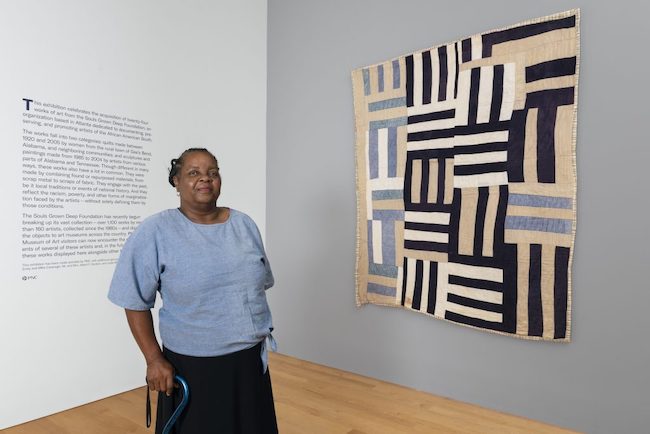ImpactAlpha, June 25 – The foundation that holds one of the largest collections of art by African American artists in the U.S. south will invest its assets in the communities where those artists lived and worked.
The Souls Grown Deep Foundation is committing $1 million over three years – the bulk of its endowment – to support racial and social justice as well as jobs and community development in nine southern states.
The impact investing strategy was developed in partnership with Upstart Co-Lab, a network of investors in “the creative economy,” as a way to share some of the growing value of Souls Grown Deep’s collection with the families and communities of the 160 artists who created the more than 1,000 works.
The approach could prove attractive to other arts-based institutions as well. At least $58 billion sits in the endowments of museums, performing arts organizations, art schools and artists’ foundations, So far, few have directed those assets toward mission-related investments.
“Boards are now facing protests, petitions and public outcry about individual trustees and the sources of their wealth creation. This approach is a way to redirect the conversation,” Souls Grown Deep’s Maxwell Anderson told ImpactAlpha. “We feel like we’ve entered into a new framework for the arts.”
Hiding in plain sight: More than 100 funds that are investing in the creative economy
The foundation is grappling with one of the realities of the art world: artists often reap little of the value of their work. Starting in the 1980s, art historian William Arnett began collecting works of largely unknown African American artists in the south, such as Thornton Dial and the quiltmakers of Gee’s Bend in Wilcox County, Alabama, whose work inspired Amy Sherald’s portrait of Michelle Obama.
As head of the Indianapolis Museum of Art a decade ago, Anderson was curating an exhibition of Dial’s work. Arnett agreed to form a foundation and donate his collection; Anderson joined the board and later became the foundation’s president (the foundation’s name comes from the last line of Langston Hughes’ 1921 poem, The Negro Speaks of Rivers: “My soul has grown deep like the rivers”). Souls Grown Deep’s strategy is to gift and sell the works to museums to diversity their collections and increase the visibility of African American artists.
“As resources flowed our way, we had the resources to apply to philanthropy, right back to the locations where these artists had come of age,” said Anderson, who has also headed the Whitney Museum of American Art and the Dallas Museum of Art. This year, the foundation created the Souls Grown Deep Community Partnership to manage its efforts to improve the quality of life in regions that produced the artists in its collection.
Anderson said trustees have agreed to invest essentially 100% of the foundation’s investments in mission-related investments. “As cultural institutions grapple with misgivings about sources of philanthropy, our board decided that it’s not just where we provide support, but how and with whom we invest that matters.”
Upstart’s Laura Callanan, former senior deputy chairman of the National Endowment for the Arts, is an advocate for investments in creative people and businesses as a way to give companies and investors an edge and to drive impact, such as job-creation for low-income groups. Souls Grown Deep is the first cultural institution to invest in what Callanan is calling Upstart 2.0, a community of creative economy investors. Other investors include impact investor Lorrie Meyercord and art dealer Martha J. Fleischman
For arts organizations, investments in the creative economy could be a natural first step in deploying their endowment assets for impact.
“These are creative organizations. They need something related to their mission,” Callanan told ImpactAlpha. “We hope they come for opportunities in the creative economy, but stay for opportunities in gender, the environment and other issues.”











